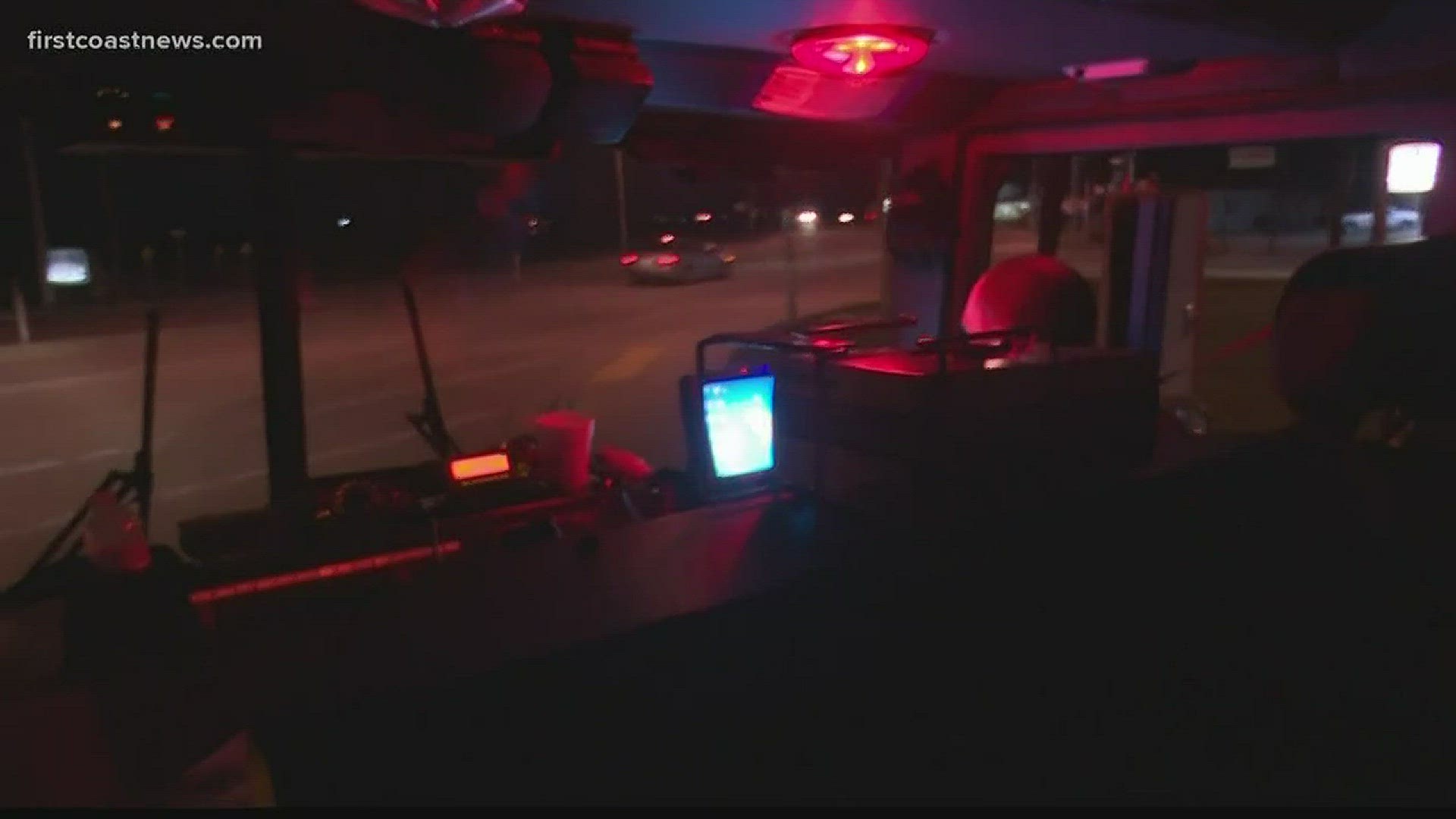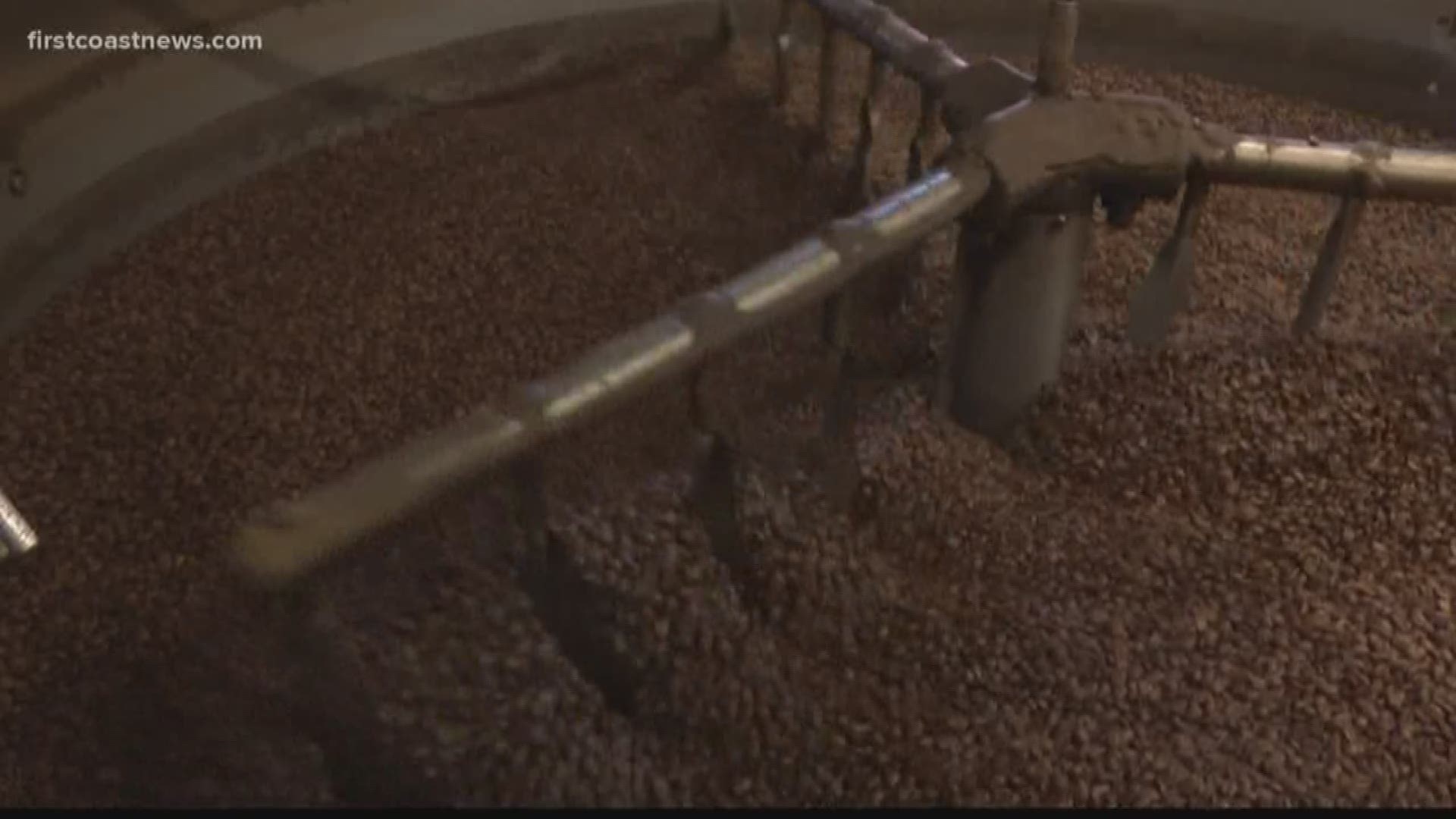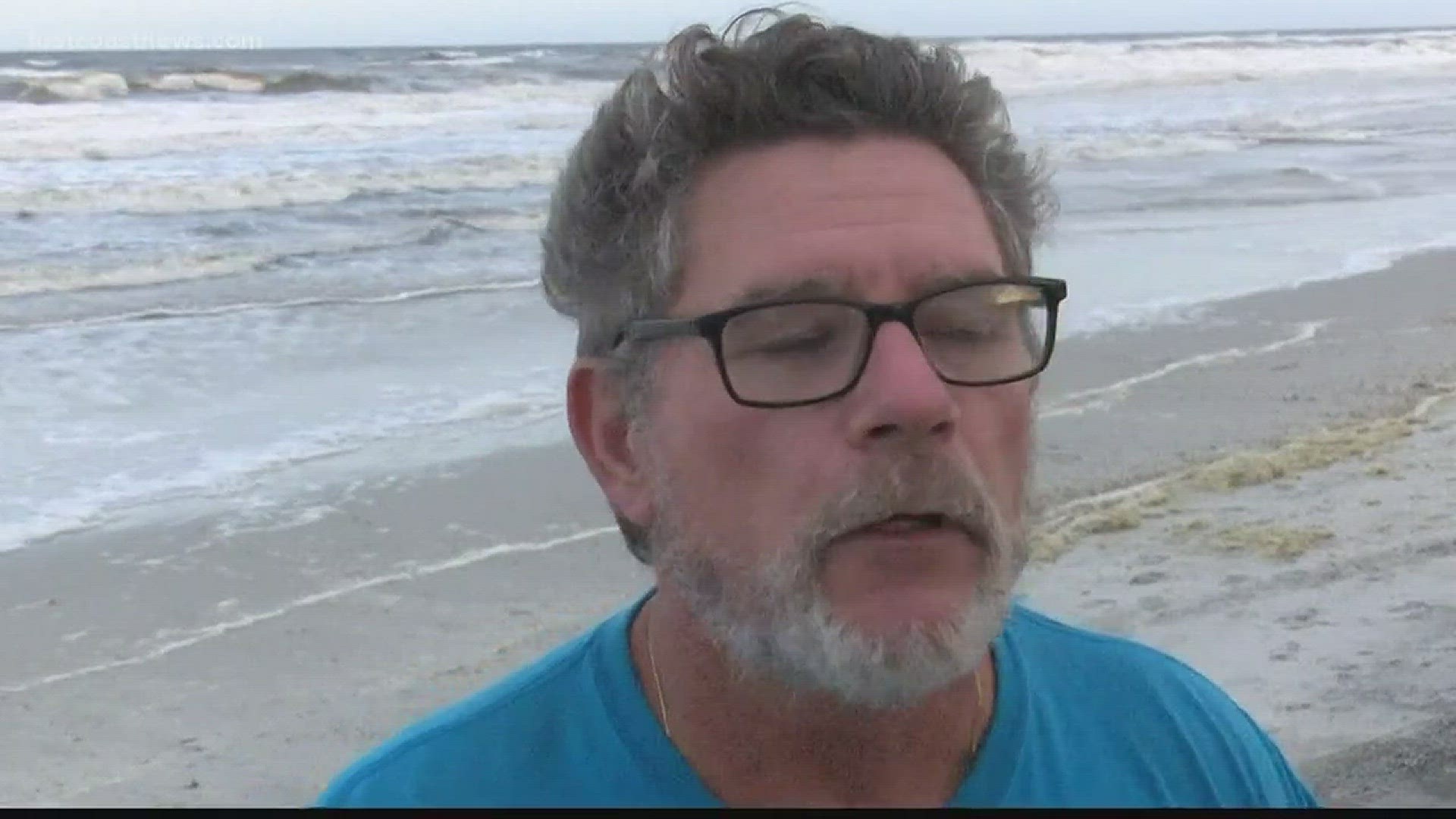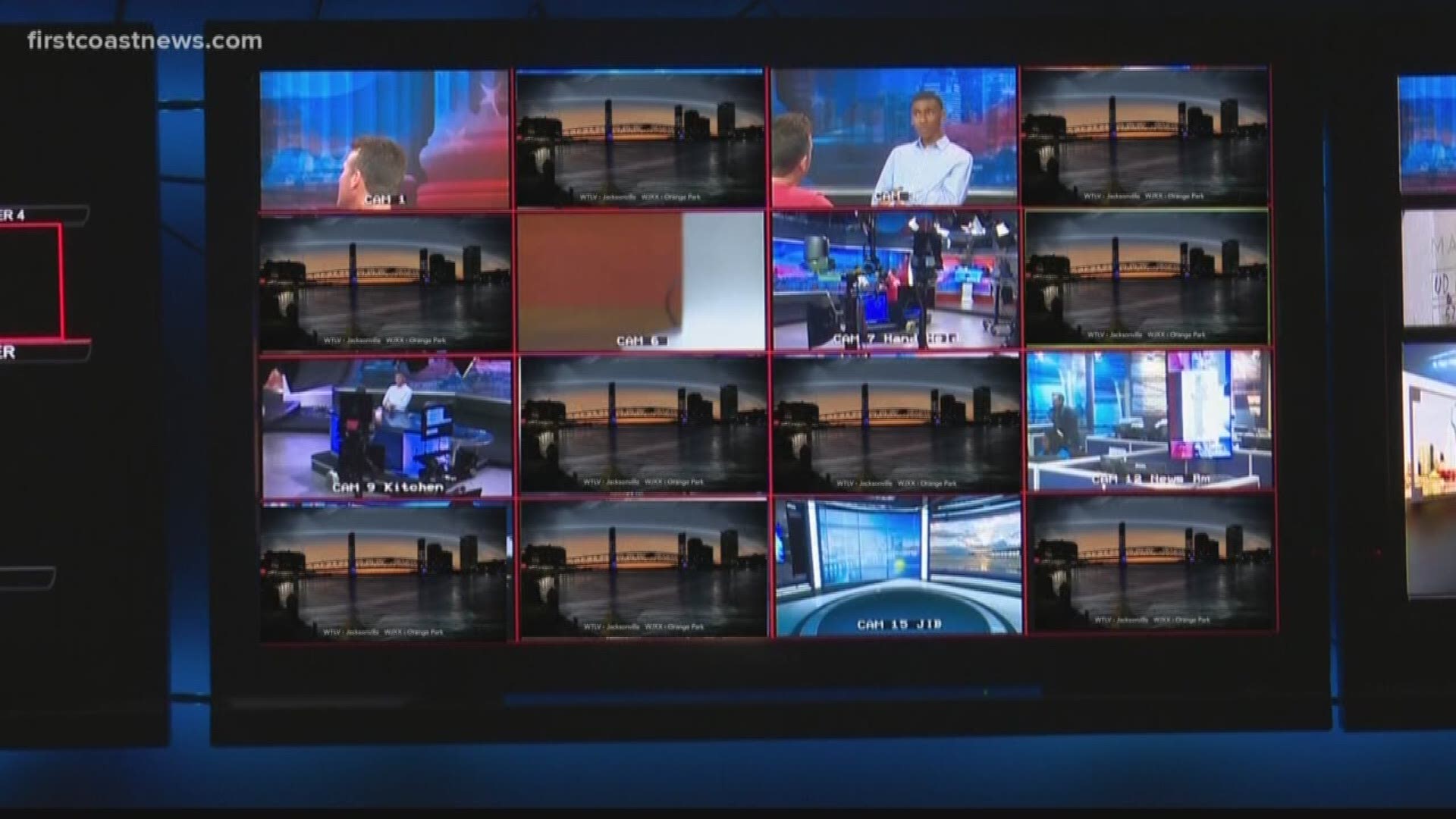GMJ AFTER DARK: FIREFIGHTER
Emergencies happen around the clock, and we expect our first responders to get to any situation right away. The overnight shift can be a busy one for firefighters who deal with everything from medical calls to car wrecks.
On this GMJ After Dark, Our Alex Osiadacz takes us to St. Augustine for a ride with Ladder 47.
Brandon Seymore is a third generation firefighter with a decade on duty. On this night it's not a fire, but a fight on the city's south-end that prompted a call. They're asked to check cuts on a woman, who refuses treatment.
"While we’re here we’re exposed to all kinds of things, we’re running calls we’re staying active and keeping up with the apparatus, fire inspections we stay really busy," Seymore said.
A quick call, but one they get often.
Seymore explains the job takes a lot of support and understanding on the home front.
"It’s harder for our family members not in the business that don’t understand you can’t be there for every holiday, you can’t be there for every birthday," he said.
GMJ AFTER DARK: MARTIN COFFEE
It's loud, dusty, and comes with an early wake-up call, but all worth it for Ben Johnson and his team at Martin Coffee.
The company, like their brew, is steeped in history.
“I work here with my father, my sister, I had the opportunity to work with my grandparents at one point,” Martin Coffee president Ben Johnson said.
60 years ago Johnson's grandparents, Fred and Amy Martin, established a store on Bay Street. Waking-up in the middle of the night to roast beans and supply Jacksonville with their morning cup.
The location has changed, but the process right down to the mid-20th century equipment used, has not.
“Not only fun that we sell a lot of coffee, but also the whole history behind the coffee we’re actually sourcing the coffee from the farms and different growing regions to actually roasting it, packaging it, delivering it,” Johnson said.
By sunrise the smell inside the warehouse is mouthwatering. After roasting, the beans are vacuumed up and moved to storage. Cooling for 24 hours to build flavor, then off to the grinder.
The last stage in the warehouse is packaging. That’s where this machine takes the coffee, puts it in wrapped containers, and then dropped into boxes. From there It's out to customers along with brewing machines which Martin Coffee sells and maintains: all adding to longer days.
“In the coffee business, you learn to just never really have to sleep because you never know when you’re going to have to get called because our customers at our restaurants and hotels are drinking coffee 24 hours a day,” Johnson said.
Johnson's key to surviving early, late, and swing shifts at the roastery? Naturally, he said, “A lot of coffee. A lot of coffee.”
And there's plenty of that everywhere you look.
GMJ AFTER DARK: SEA TURTLE PATROL
It's Just before sunset in Neptune Beach, and Kevin Brown is out on patrol.
After a long day of teaching and coaching, his mission tonight: protecting one of Florida's original beach visitors. Sea Turtles and their eggs.
“It’s something we have in Florida that probably every young Floridian should be able to see,” Brown said.
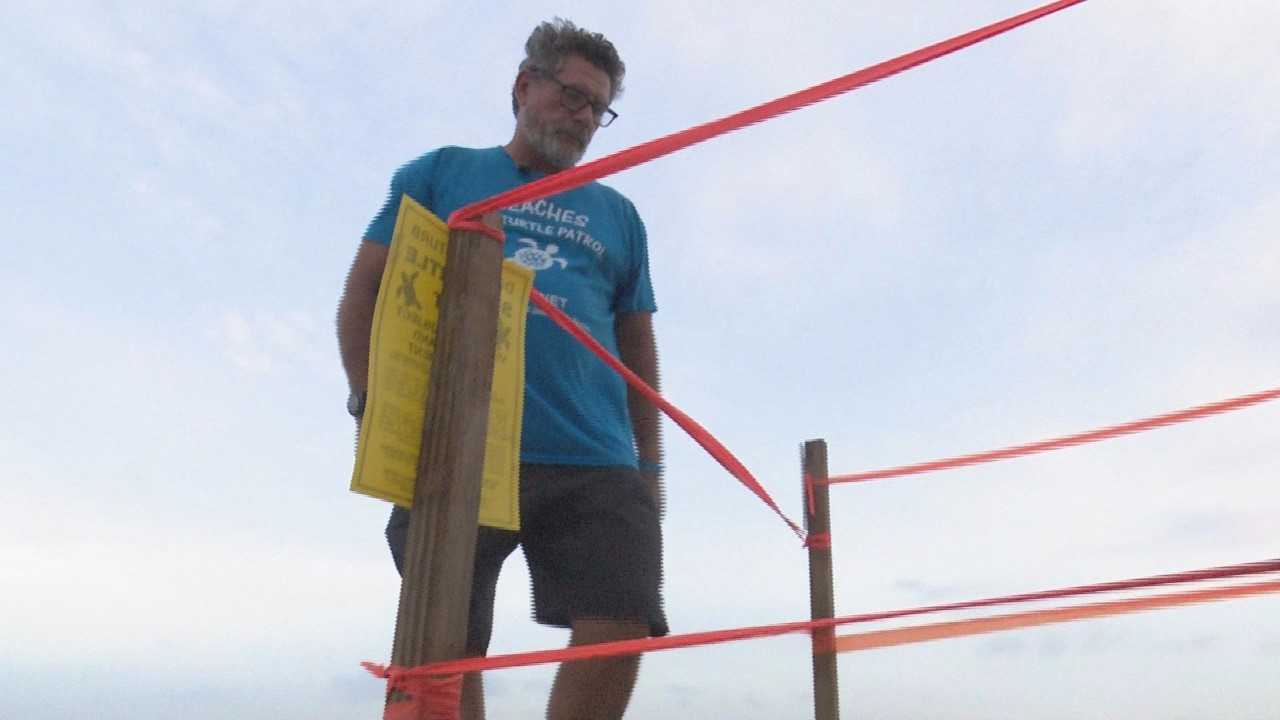
It has been a hard year for the area. Dunes and nesting grounds devastated first by Hurricane Matthew in 2016, then a mid-season washout caused by Hurricane Irma in 2017.
“The turtles are durable animals and I think our beach will be able to continue to thrive and have turtles nest in here,” Brown said.
Brown and about 35 Beaches Sea Turtle Patrol members are not paid. They do it because they care about the animals and the environment: no matter the time of day he adds.
“Every morning we’re up at the first light,” Brown said.
At again at night checking lights and holes that could keep hatchlings from making it into the ocean.
“This is why we do it, not only to be able to protect the animal, but we do get some good marine data and it tells us the condition of our ecosystem.>
One that has bounced back before, and will again with watchful eyes on patrol.
GMJ AFTER DARK: TV PRODUCER
5 a.m. is show time!
For producer Tiffany Pittman, a night’s work is about to go on television. She works opposite the sun to get the news ready for you.
“When do I sleep? I think that’s what everyone wants to know about our shift. On a good day I sleep between 2pm and 10pm and on a bad day I go to bed around 5pm. Or if you fall into what is called the nap trap, which is where as soon as you get home you go to sleep for a couple hours and then you don’t sleep again until about 6pm,” Pittman said.
She’s been on the job 11 months, and working opposite the sun isn’t exactly a cake walk. Settled into her desk before midnight, Pittman is tracking-down video and information on stories: making sure every story is on-time.
“It’s a lot of time management, almost like a puzzle. Yeah it’s really just trying, this job is trying to figure out the best content, the best things people need to know when they wake-up in the morning and head out to work, and the best way to put that on TV so they understand,” Pittman said.
Take Hurricane Irma for example when Pittman was in the booth for hours.
Relaying critical information, taking calls, and getting crews in the right place so we could tell the story safely.
“Why did I get into this? I’m very nosey. I like to know what’s going on, I like to be ahead of the game and be that person who is like ‘hey did you hear this?” Pittman asked.
And if you did, you probably heard it from Tiffany.
GMJ AFTER DARK: Sleep Technician
Time for bed, but not for the man running the sleep study at Baptist Medical Center Nassau.
“If I’m rested it’s interesting, on days that I haven’t slept well it’s a little taxing,” sleep study technician Tim Pettus said.
Rest can be hard to get. Pettus works for 12 hours under the cover of night...as his patients are just under the covers. Monitoring sleep disorders that can be life-threatening.
“Once they come in and get treated for sleep apnea, they wake-up and often times the first night I awaken them from being on C-PAP all night they’re amazed at the level of refreshedness that they have that morning,” Pettus said.
Cameras and sensors track patients as they sleep. He found out about his apnea in the same type of setting. Now he relates on a deeper level to his tired study participants.
“I can tell them that if you experience this then you can deal with it, it’s been a real great improvement in how I can relate as well as helping them adjust to the treatment,” Pettus said.
In 25 years on the job, Pettus has seen almost everything in the book, but some cases stand-out.
Like one where a patient could not control their muscles during R.E.M. sleep.
“In a small percentage, something shuts down in that mechanism and they can actually get out of bed and run from someone chasing them it’s a dangerous situation because they can hurt themselves,” Pettus said.
A reason why his eyes stay open while patients and most of us have ours closed.

